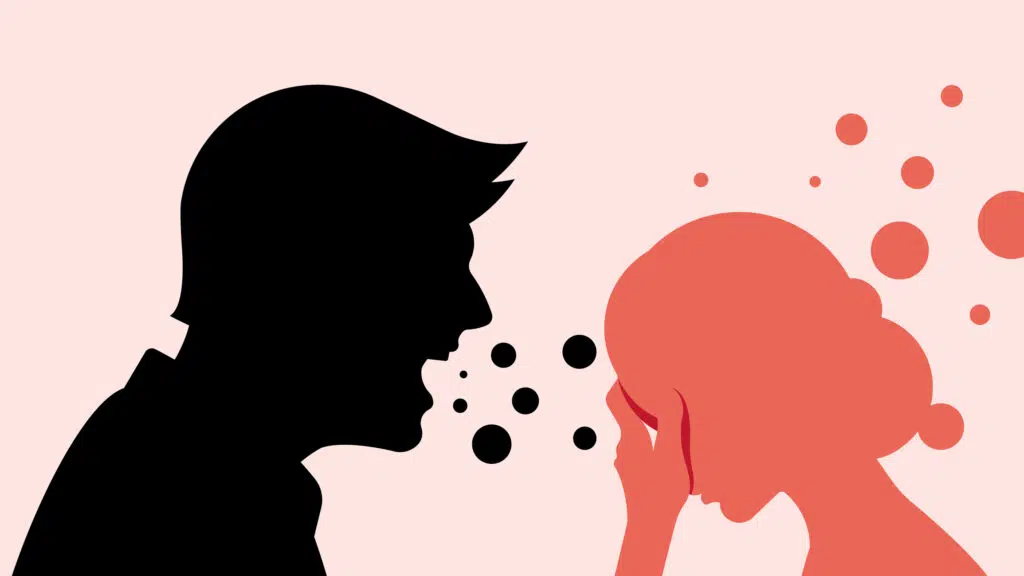How To Know When You May Need A New Therapist
Finding a therapist and finding the right therapist for you aren’t always the same. It’s not as simple as it should be. Maybe you find a great therapist, but after a few sessions, you’re having doubts. Or perhaps you’re seeing a couple of red flags, and it’s time to switch therapists. This article breaks down the telltale signs that you may need a new therapist and how to talk to your therapist about it.
What Are The Reasons Why You May Need a New Therapist?
Sometimes it can feel difficult to connect or relate to your therapist, or maybe you’re not seeing any progress. Whether you’re in therapy now or considering speaking to a mental health professional in the future, it’s important to think about finding a person who is the right fit for you.
In some cases, an individual may give up on therapy altogether if they don’t get on with their therapist. But, the reality is that all therapists are unique, with different approaches and specialties. If you have made the brave decision to go to therapy, don’t be afraid to switch therapists if you feel like you’re not getting as much as you should.
7 Signs That You May Need A New Therapist
Remember that there is nothing wrong with switching therapists. You should feel comfortable speaking with your therapist. If you think you need a different therapist, here are 7 signs it could be time to switch.
- Feel Like You Can’t Be Honest
In therapy, you will need to talk and be open with your therapist. These conversations can feel difficult and uncomfortable. But, in order for your therapist to help you move forward, they need you to be honest. If, for any reason, you feel like you can’t be honest with your therapist, it will be more difficult to progress. Telling the truth is a key part of therapy, and if you feel like you need to conceal the truth, ask yourself why.
- Not Seeing Any Progress
There’s no specific timeline for therapy. Depending on the reason for attending, and your own situation, you could experience progress at significantly different times from someone else. However, it’s important to evaluate your progress at different points of therapy. If you feel like you’re seeing no movement or talking about the same issue repeatedly with no direction, it could be a sign that you may need a new therapist.
- Therapist Lacks Boundaries
Anytime that you feel there is a lack of boundaries and you’re not being respected, you should leave the session. There should be absolutely no suggestion of friendship or more. The therapist and client relationship should be respectful and professional. For instance, if you feel like your therapist has forgotten you’re their client and starts sharing their personal life that is irrelevant to your session, that’s overstepping. Your therapist isn’t a close friend.
- Canceling Or Late To Appointments
From time to time, it’s normal to be late on occasion. If your therapist is constantly late or canceling appointments, they’re not respecting your time. You shouldn’t feel like you are a burden to someone and they don’t have time for you. Your therapist will expect you to show up on time, and they should do the same for you.
- Your Therapist Isn’t Neutral
If you and your partner are in couples therapy and find that your therapist always sides with one of you on everything, it will be challenging to stick it out. Sometimes, your therapist may side with one of you in a specific situation. However, if they are always taking the same side and not remaining neutral, you may both benefit from a new therapist with an unbiased perspective.
- Don’t Feel Listened To
Do you feel like your therapist is listening to you? Do you feel heard and validated? If the answer is no, opening up and speaking honestly can be hard. That doesn’t mean that your therapist should nod and agree to everything you say, but they should listen to you in a way free from judgment.
- Your Therapist Is Inexperienced
There are many types of therapists, all with their own specialties, approaches, and experience. A therapist could be a specialist in ADHD, cognitive behavioral therapy, or treating phobias. It could be that your therapist does not have the expertise to treat your specific issue. For instance, dealing with addiction within a couple needs someone who understands both couple dynamics and addiction.
What To Do If You’re Ready To Switch Therapists
Keep in mind that therapy can feel hard. Often, you’re talking about uncomfortable topics that can bring up a lot of emotions. While the above are red flags in a therapist, switching therapists may not be the solution if you are not ready to talk or make changes. But, if you don’t feel listened to, can’t speak openly, and feel like your therapist is unreliable, finding a new therapist who ticks all your boxes is a good idea. Trust your gut and do what you think is right for you.
So, if you’re thinking, “Should I break up with my therapist?” you’re probably wondering the best way to do it. How should you talk to your therapist about not feeling progress in therapy?
Try to be honest and speak to your therapist politely. Be straightforward and start by having a discussion. Let them know that you are thinking about seeing another therapist. If you are comfortable, you can talk about your concerns to see if the current situation could be saved.
The other option is to stop seeing your therapist without discussing your concerns. If you’re happy to, request a final session. If not, you can let them know your decision over email or text if you prefer to avoid a face-to-face conversation. Don’t feel bad about switching therapists. Sometimes, finding the right fit for you can take a few attempts. Try not to let the experience put you off therapy completely; you can find a therapist who can help.
How To Find A New Therapist
When looking for a new therapist, think about some of the reasons it didn’t work out with your therapist. What concerns did you have that made you want to switch therapists in the first place? Did they struggle to relate to you? Unless you have a condition that needs immediate support from a therapist, take a moment to think about what you want and consider the following questions:
- Do you want a therapist that specializes in a specific therapy style?
- Do you need your therapist to have a better understanding of an area like culture or gender?
- Does your new therapist have experience treating people similar to you?
Start to make a list of the factors that are most important to you. The aim is to align your therapist search to your needs so that you are more likely to find someone that is the right fit. Once you narrow down your search, have a conversation with your potential therapist and reflect on how you feel after.
Finding the best therapist for you can feel like a process, but it’s important to think about your needs so that you can speak to a mental health professional who can help you. Although therapy takes time, and you need to be patient with yourself, don’t be afraid to switch if you need a different therapist.
To start your therapy journey today, contact the team at Thriving Center of Psychology. We can help find the right therapist for you based on your needs. Book an appointment online or call one of our offices in New York, California, Florida, New Jersey, Oregon, Minnesota, Illinois, Massachusetts, and Washington.

Understanding Impostor Syndrome: Breaking Free from Self-Doubt
Imposter syndrome can make you feel like a fraud with no confidence in your abilities. You’re not alone; so many people feel like this. The good news is that you can break free from imposter syndrome and overcome self-doubt; here’s how.

Supporting a Loved One with Mental Illness: Practical Tips and Resources
There isn’t one perfect way to support a loved one with mental illness. How you care for someone will depend on you and the person you support. Mental illness can affect all aspects of a person, from mood to behavior. It can come as a shock when a loved one is diagnosed with a mental illness.

Is My Relationship One-Sided?
Do you feel like you’re doing all the work in a relationship? When a relationship is one-sided, it can create stress and conflict. If one partner invests more energy and effort to make the relationship work, it creates an imbalanced dynamic that can be draining in the long haul.

How To Recover From Burnout?
Manageable and short-term stress can increase alertness and give you the focus to hit a tight deadline. But left unchecked, chronic stress can result in burnout, leading to complete physical, mental, and emotional exhaustion.
